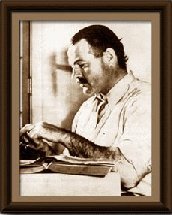A recent article in BusinessWeek by New Urbanist architect Andrés Duany recasts New Orleans not as among the most dysfunctional, economically challenged American cities but instead as one of the wealthiest, cleanest (!) Caribbean cities. Once you think of New Orleans in this way, Duany says, you begin to understand it better:
Like everyone, I found the city government to be a bit random; then I thought that if New Orleans were to be governed as efficiently as, say, Minneapolis, it would be a different place—and not one that I could care for. Let me work with the government the way it is. It is the human flaws that make New Orleans the most human of American cities. I don't have any actual experience with the Caribbean (Duany is Cuban-American), so I'll defer to others on that comparison. But Duany does seem to put his finger on something a little more specific about why New Orleans charms so many people, your humble correspondent included. It is, in contrast to the typically American work-work-work, spend-spend-spend mindset, more solicitous of leisure time and the enjoyment of the simple things:
I don't have any actual experience with the Caribbean (Duany is Cuban-American), so I'll defer to others on that comparison. But Duany does seem to put his finger on something a little more specific about why New Orleans charms so many people, your humble correspondent included. It is, in contrast to the typically American work-work-work, spend-spend-spend mindset, more solicitous of leisure time and the enjoyment of the simple things:
One way to leisure time is to have a low financial carry. With a little work, a little help from the government, and a little help from family and friends, life could be good! This is a typically Caribbean social contract: not one to be understood as laziness or poverty—but as a way of life.
Leisure, in turn, allows folks time to do things like create and play music, refine recipes that produce glorious meals (to be slowly savored with family and friends), and create elaborate costumes and stage parades -- all things for which New Orleans is justly famous. But: low financial carry? How does your average American remain out of debt these days yet benefit from an acceptably modern standard of living? Being an architect, Duany fingers the unique housing situation of New Orleans:
But: low financial carry? How does your average American remain out of debt these days yet benefit from an acceptably modern standard of living? Being an architect, Duany fingers the unique housing situation of New Orleans:
[The damaged and destroyed homes] were exceedingly inexpensive to live in, built by people's parents and grandparents or by small builders paid in cash or by barter. Most of these simple, pleasant houses were paid off. They had to be because they do not meet any sort of code and are therefore not mortgageable by current standards.
According to Duany, the trouble in maintaining this more leisurely culture post-Katrina will come from applying modern, and vastly more expensive, standards to the rebuilding effort. The result: "Everyone will have a mortgage that will need to be sustained by hard work—and this will undermine the culture of New Orleans."
His solution: Reinstate the self-building culture of yesteryear. To wit:
I would recommend an experimental "opt-out zone": areas where one "contracts out" of the current American system, which consists of the nanny state raising standards to the point where it is so costly and complicated to build that only the state can provide affordable housing—solving a problem that it created in the first place.
Regardless of whether or not one thinks this is a good idea, I like Duany's recognition of New Orleans's essentially non-American character and also worry about its preservation. Da Po' Blog rallies to the idea:
Can we still be the alternative civilization to the American Industrial Empire? ... America wants to own us. They want New Orleans to be an American town. We must fight.
Maitri is more skeptical in her response:
Let's not confuse cultural accomplishment to date with an effective society, especially when we host a murder a day and some banana republics have it more together than us… It's not America vs. New Orleans or bust.
I reckon only time will tell which vision prevails.
Related:
Congress for the New Urbanism
New Urbanism in the Post-Katrina Storm Zone
Thursday, March 08, 2007
A City Without a Country?
Posted by Dave at 4:57 PM
Labels: new orleans
Subscribe to:
Comment Feed (RSS)











|